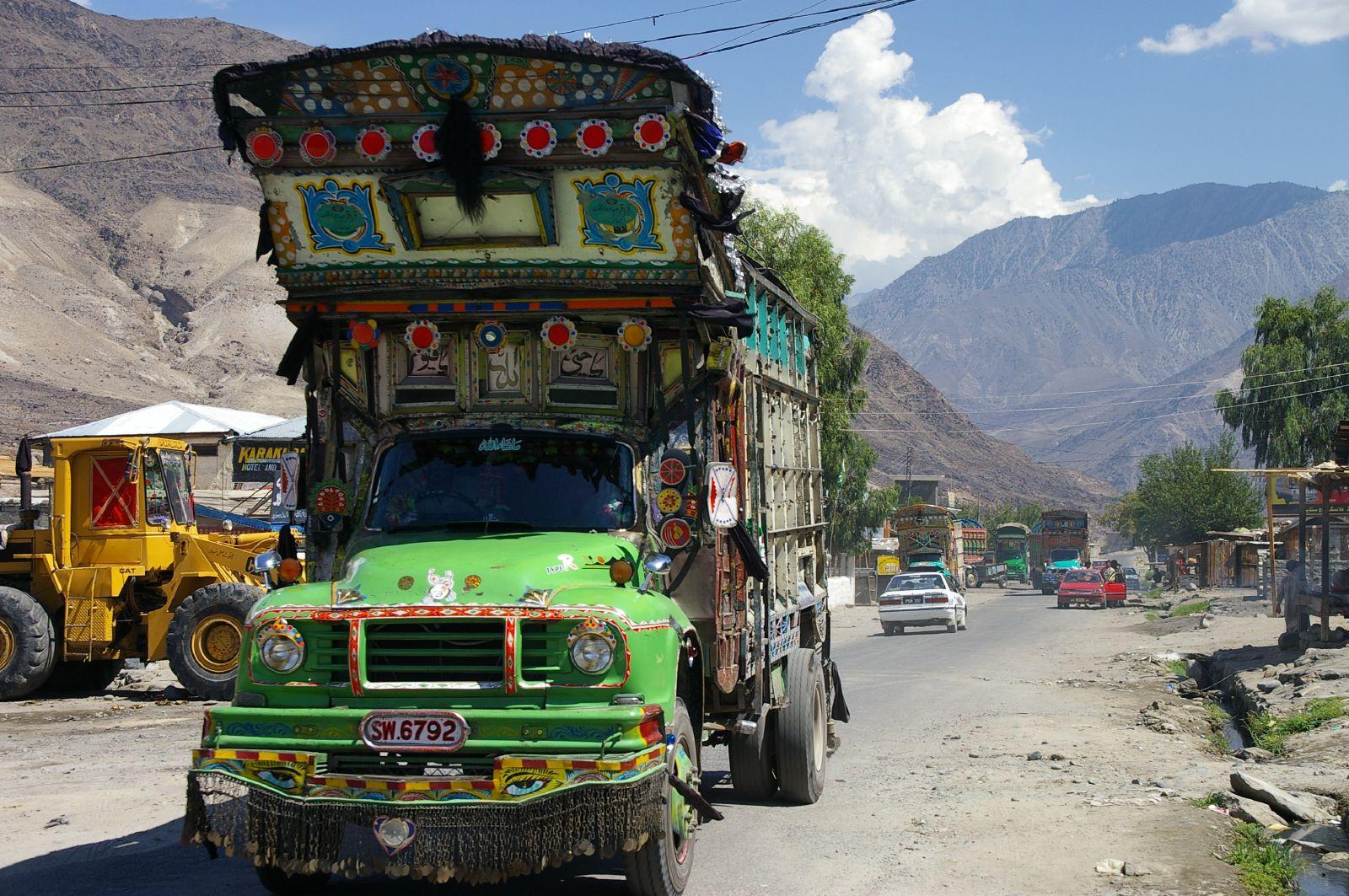Innocent home videos are becoming Pakistani ‘porn’ on YouTube and destroying lives
Two women in Chilas, Pakistan, were killed after a family member believed they had soiled their family’s honor.
The distant hills of northern Pakistan’s Chilas valley sparkled in the rain as the sisters laughed and spun in circles. Someone took out a mobile phone and made a video of their private, playful and innocent moment.
In June, the two sisters and their mother were brutally gunned down by their step-brother, an apparent “honor“ killing over the mobile video.

Screenshot of the alleged mobile video that got the two sisters killed from a YouTube Video uploaded by NewsMedia24.
The video clip circulated from phone to phone among their conservative community. Apparently it had brought “shame” upon the family.
By ending their lives with his gun, the step-brother was trying to wash away the supposed shame his sisters had brought upon the family, thus reclaiming their honor or ghair’at, as it is called in Urdu. Some say the video and honor killing were part of a plot to maneuver his stepmother out of the family property.
To many, the Chilas sisters’ video seems completely ordinary, but in their hometown, girls dancing in the rain, even fully clothed, is seen as erotic.
"In a society where segregation (across genders, but also across class and gender) is so prized, just access to the mundane life of a random pakistani girl is so exciting,” Pakistani filmmaker and culture blogger Ahmer Naqvi explained in an email.
The Chilas sisters are not the only Pakistani girls who have had their private moments hijacked and sexualized for public consumption.
A search for “Pakistani Dancing” on YouTube, a site that is banned in Pakistan, yields hundreds of thousands of results. Many of these videos are private moments captured at family functions, weddings and school events. They are frequently shot on mobile phones, and I wouldn’t be surprised if they were uploaded without consent.
The tagging, titles and comments around these often innocent videos is almost always sexualized. To highlight the range of ways in which videos made by Pakistanis for private consumption are misappropriated, Global Voices Online concealed the faces of the dancers and used the YouTube clips to create a short film.
The film opens with a woman doing a traditional dance at an intimate family gathering, but is titled “Pakistani girl dance in Islamabad College party.”
A mobile video of a student mimicking a Bollywood dance in a classroom is likewise labeled “HOT Young Pakistani girl Dancing in Lahore.” This particular clip has been appropriated in various ways across YouTube, including in a Jihadist propaganda video titled “Modern CoEducation In Pakistan or Sex Nurseries.” Another clip is an outright name-and-shame video, identifying students from “City School,” one of Pakistan's largest private co-education schools.
“Abbotabad pakistan hot girls sexy dance pashto song,” the next clip in, is probably not from Abbottabad, where Osama bin Laden was killed; the “hot girl” in the video probably isn’t Pakistani and her gyrations are definitely not to the beat of the Pashto song amateurishly overlaid on the video. On YouTube, the same clip has been uploaded with various soundtracks and titles including, “Pakistani Girls Sexy Indoor Dance: Sexy Mast Dance Leaked Video”.
These clips, and many more, are systematically tagged and titled with erotic signifiers to attract a prurient audience. Naqvi has appropriated this tactic in his critical films.
“All my YouTube videos have tags like sex hot threesome Pakistani couple kissing etc., because all desis [South Asians] search for them and it's the best way to get unsuspecting hits,” he says.
Naqvi’s short film, “A Pakistani Sex Scene,” has no nudity, but it has been viewed more than 650,000 times on YouTube and another 630,000 on Vimeo.
Pakistani women dance and sing even in the most conservative towns, but usually only with trusted family. Many never dance in front of ghair (outsiders), to avoid casting a shadow on their family’s honor. This private culture has been repeatedly exposed through indiscreet sharing of images captured for private use.
“You never know when one of your innocent images that you clicked while having fun with friends or while showing off a new dress or hairstyle is used with a sexual overtone in obnoxious videos,” says Pakistani technologist and digital privacy activist Fariha Akhtar in an email. “Before putting online our private videos, we need to ask ourselves if there's really no other way to share them with friends and loved ones.”
Other videos on YouTube are from opulent private wedding dance parties. Currently, in Karachi, Pakistan’s largest city, you can buy DVDs titled, Ameero ke Raks (Dances of the Rich), clips from private weddings packaged into films that condemn the rich for their vulgarity while at the same time reveling in their hedonism.
This phenomenon points to a larger issue.
“The lack of conversation on sex and sexuality is a society-wide problem,” Naqvi said. “The various news stories about Pakistanis leading the world in online searches for weird sex stuff is just one symptom. But it manifests itself in various ways. At some level this intentional sexualisation is also about fantasy.“
The Chilas sisters, it seems, were also living out a fantasy: dancing freely in the rain. For women in Pakistan, the reality is that even simple fantasies can have deadly consequences.
